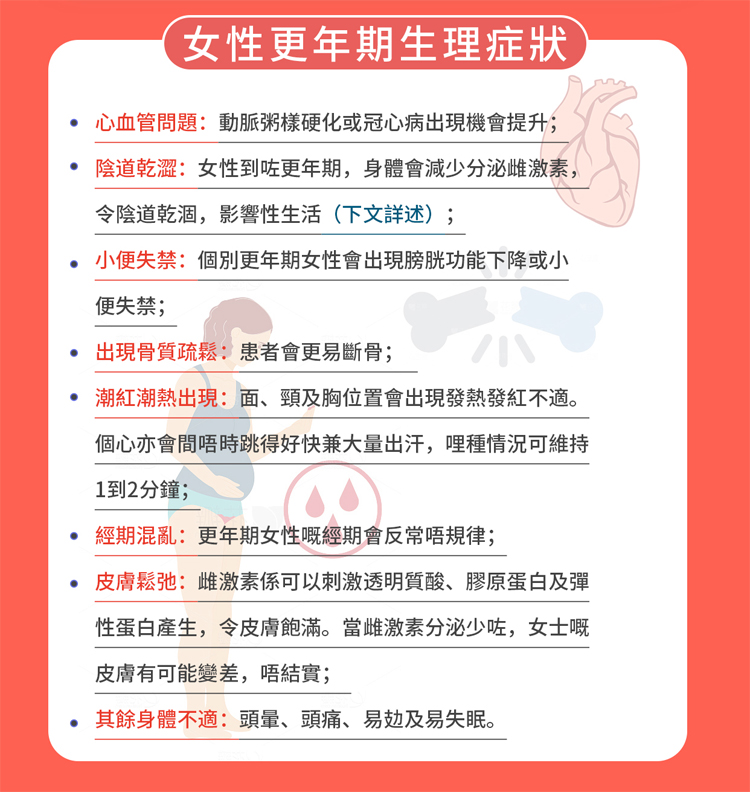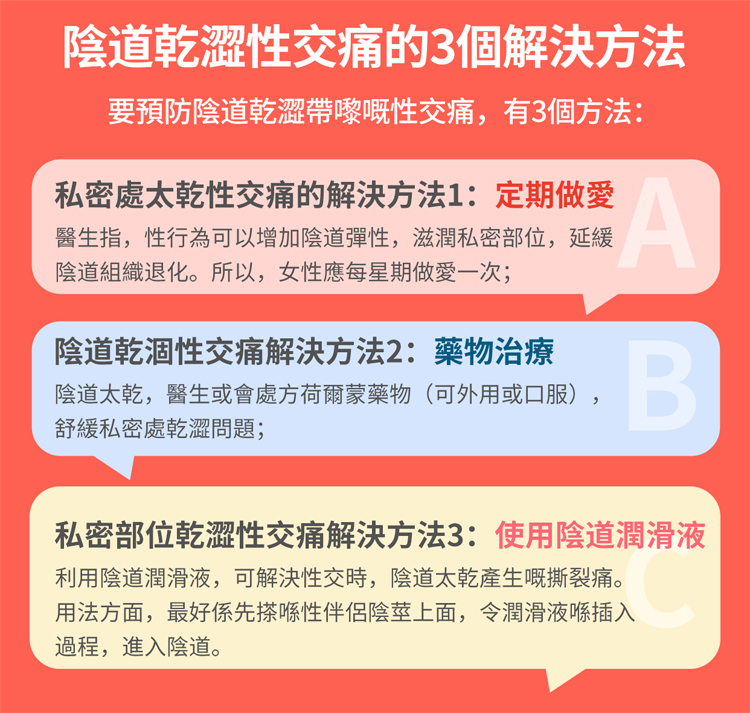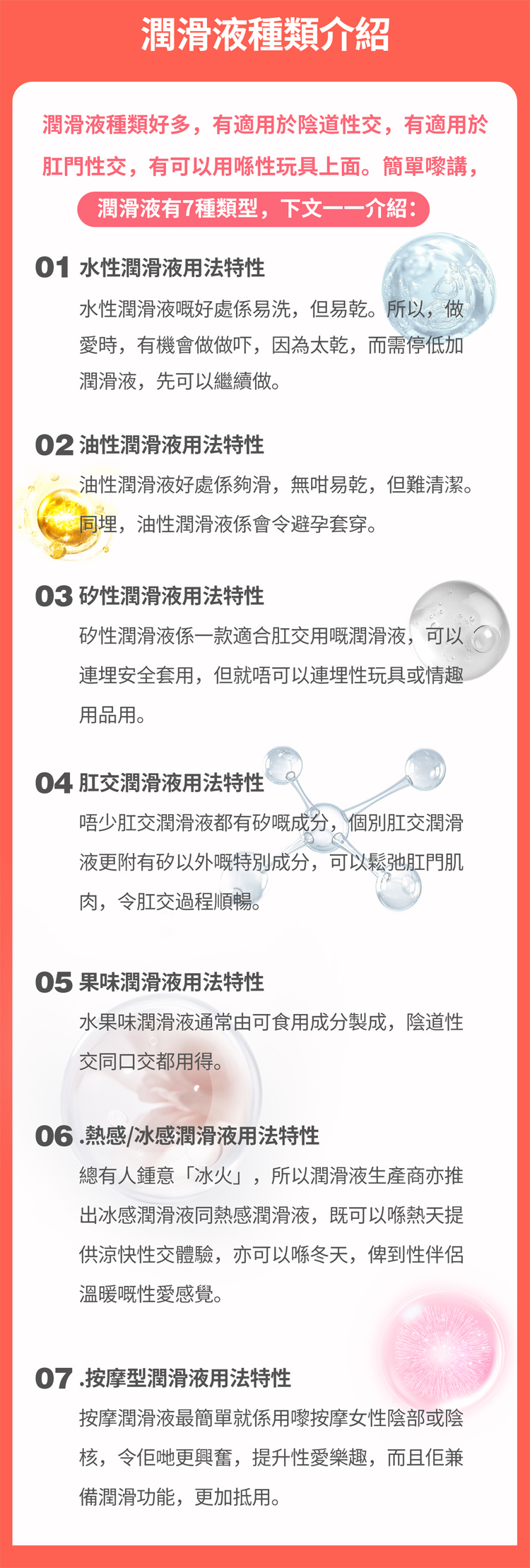Introduction to Vaginal Care


Vaginal dryness is common in women in their 40s and 50s during menopause. Worried that sex will cause inflammation in your intimate area? Here are 3 tips to solve the problem. Vaginal dryness is a normal physiological phenomenon in women, especially during menopause. If sexual intercourse is carried out in a dry vaginal condition, it can cause pain, tearing, and even vaginal inflammation. How can you avoid this and still enjoy sexual pleasure? This article will explain.
Cause of vaginal dryness: Menopause in women
Menopause refers to the period before a woman's menstrual cycle stops. It not only affects a woman's psychology but also leads to varying degrees of changes in her lifestyle and sexual habits.

Age of menopause in women
Menopause generally occurs in women between the ages of 45 and 55 (lasting 4 to 5 years), but the actual age of onset varies from person to person. When women reach menopause, hormonal changes occur, particularly in the production of estrogen, which can lead to changes in physical and mental health, as follows:
Psychological symptoms of menopause in women
Depression;
Lack of confidence;
Bad temper;
Difficulty concentrating;
Anxiety;
Memory decline.
Physiological symptoms of menopause in women

• Cardiovascular problems: The chance of developing atherosclerosis or coronary heart disease increases;
• Vaginal dryness: Women experience decreased estrogen production during menopause, resulting in dryness of the vaginal mucous membrane, which affects sexual activity (detailed below);
• Urinary incontinence: Some menopausal women experience decreased bladder function or urinary incontinence;
• Osteoporosis: Patients are more likely to experience bone fractures;
• Hot flashes: Hot flashes and night sweats occur, with the face, neck, and chest feeling feverish and uncomfortable. The heart may beat rapidly and produce large amounts of sweat during these episodes, which can last 1 to 2 minutes;
• Irregular menstruation: Menstruation in menopausal women becomes irregular and abnormal;
• Loose skin: Estrogen can stimulate the production of hyaluronic acid, collagen, and elastic fibers, which makes the skin more plump. When estrogen production decreases, women's skin may become less firm.
Other physical discomforts may include dizziness, headaches, fatigue, and insomnia.
How does vaginal changes during menopause affect sexual intercourse?

Vaginal dryness is a common problem among menopausal women. According to the Family Planning Association, the decrease in estrogen secretion causes the vaginal mucous layer to become thinner and less elastic, which leads to itching. In addition, with the decrease in vaginal secretions, if the foreplay before sexual intercourse is not enough, and sexual intercourse is forcibly initiated in a dry vaginal state, it will cause pain, bleeding, and even vaginal inflammation. Doctors also point out that the stretching and expansion force of the vagina decreases with aging, and the pelvic floor muscle support of the vagina also weakens. Therefore, exercises to strengthen the pelvic floor muscles, use of vaginal moisturizers, and the application of hormone replacement therapy (HRT) can alleviate the discomfort of vaginal dryness and other menopausal symptoms.
3 solutions to vaginal dryness and painful sex
To prevent painful sex caused by vaginal dryness, there are three methods:

Solution 1: Have sex regularly
According to doctors, sexual activity can increase vaginal elasticity, lubricate the intimate area, and delay vaginal tissue degeneration. Therefore, women should have sex at least once a week.
Solution 2: Medical treatment
If the vagina is too dry, doctors may prescribe hormone medication (for external use or oral administration) to relieve dryness.
Solution 3: Use vaginal lubricants
Using vaginal lubricants can solve the tearing pain caused by vaginal dryness during sex. It is recommended to apply the lubricant on the partner's penis first, and then insert it into the vagina during intercourse.
Introduction to types of lubricants
There are many types of lubricants available, including those for vaginal sex, anal sex, and sex toys. In general, there are 7 types of lubricants:

Water-based lubricants
Water-based lubricants are easy to clean but may dry out easily during sex.
Oil-based lubricants
Oil-based lubricants are very slippery but difficult to clean, and may cause condom breakage.
Silicone-based lubricants
Silicone-based lubricants are suitable for anal sex and can be used with condoms, but not with sex toys.
Anal lubricants
Many anal lubricants contain silicone, but some also have additional ingredients that relax the anal muscles and make the process smoother.
Flavored lubricants
Flavored lubricants are typically made from edible ingredients and can be used for both vaginal and oral sex.
Heat/cooling lubricants
Some people enjoy the sensation of heat or cooling during sex, so lubricant manufacturers have created heat and cooling lubricants to provide different sensations during sex.
Massage lubricants
Massage lubricants are designed to be used to massage the female genital area or clitoris to enhance sexual pleasure, and they also have lubricating properties.







































































-80x80w.jpg)








Leave a Comment